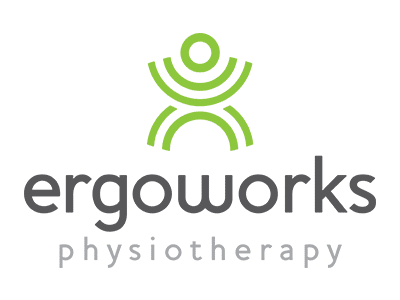Will Agile Working Kill the Daily Commute?

Spending your mornings jammed into a crowded rail carriage or stuck in peak-hour traffic can erode that precious burst of pre-lunch productivity. This has led to many workers choosing to set up home offices to maximise efficiency. As the practice grows, will future employers still require their staff to turn up for a 9 to 5 day in the office?
Agile working is #trending and set to rise in popularity, with 82% of telecommuters saying they experience less stress working from home. The longer the commute, the higher the stress levels, as well as the greater risk of depression, lack of sleep and obesity, according to a UK report.
Many agile workers are keen to make the transition to full-time, with statistics showing that about 60% of people who already work remotely saying they’d happily trade in their corporate locations if they could remain offsite and earn the same amount of pay. Respondents went so far as to say they would move jobs if it enabled them the freedom of agile working with no loss of income.
With the cost of living in cities on the rise, many employees are moving to the outer suburbs to raise families or purchase homes, leading to extended commute times. The tedious routine of a rushed morning travelling to work only to face the congestion of afternoon traffic has extinguished many employees’ passion for their jobs.
Employers are Taking Notice
Businesses are noting the benefits of agile working and virtual teams. Having more workers offsite lowers an organisation’s carbon footprint and positively impacts the environment. Carbon emissions will decrease if employers offer more work-from-home options and flexible hours because you won’t see as many cars on the road during peak hour.
A rising number of young professionals from Western cultures use technology to work anywhere, whenever they want. With their thirst for variation from the daily routine, the growing digital nomad population heralds the future of workplace practices.
There are many advantages to becoming an agile worker, with research suggesting remote working will lead to greater productivity and an improved work-life balance.
- Set your own hours – Work when and how you want. If you’re an early riser and work best in the mornings, you can start your day before most offices have opened their doors. Finishing earlier allows you more time for yourself, to exercise, relax or take up cooking classes.
- Include more personal chores – As an agile worker, you can take short daily breaks to hang out the washing or walk the dog. So, when it’s time to clock-off, rather than dreading the peak-hour rush, you can relax and focus on family or fitness.
- A boost to professional morale – According to a 2014 study, 80% of agile working respondents claimed to enjoy increased positivity for their work and 69% said they had less days off. Not having to navigate office politics every day, spend hours on public transport and being your own boss can help improve your overall wellbeing.
- Lessons learned from the young – Many corporates rely on the influx of fresh talent – millennial jobseekers and recent postgrads – to rejuvenate thinking at work. As younger workers often prioritise career flexibility and casual work environments, 68% of millennials stated that the option to work remotely would significantly increase their interest in a role.
- Less Overheads – Less commuting reduces the costs associated with travelling to and from work, while decreased operating costs are a drawcard for businesses. Shedding office space has saved millions for enterprising organisations. Employers can utilise the savings they’ve made on expensive CBD real estate to pay for adequate offsite equipment and technology for their remote staff.
Despite the many benefits of agile working, there are some challenges, which means there will be commuters for some time yet.
- Irregular hours – At home you’re always within reach of your computer, which is not always a good thing, especially if it’s 11 o’clock at night. This also goes for client contact. Once your clients realise you work from home, they may stretch the timeline at both ends of your working day, whereby you find you’re fielding phone calls at 7pm.
- Dress for success – Statistics show that donning the appropriate attire, instead of loafing around in pyjamas, usually leads to greater productivity.
- Colleague motivation – Working from home is great but what happens when you want to brainstorm? Sometimes the tech connection can miss the nuances of personal contact, which often helps to maintain creativity.
- How to delegate – Teamwork is what keeps most offices afloat, so what happens when your schedule is overloaded and there’s no one to pick up the slack? On your own at home, you may find you’re still at your desk at 1am to complete important deadlines.
- Skipping regular breaks – Productivity will decrease if you’re stuck at your desk without a breather. When you’re not governed by the movements of other staff, you may remain hunched over the computer for hours on end. The damages to your health will be increased if your workstation is not ergonomically sound, so it pays to have your work area assessed by the experts at ErgoWorks Consulting.
Is the Daily Commute Destined to Die?
As traffic congestion increases with population growth, working from a remote location or your home will reduce if not eliminate the need to travel to work. While cities and regional centres fall victim to the urban sprawl, lengthy commute times will discourage jobseekers from full-time, office-bound work.
While agile working continues to grow in popularity, employers have a legal and moral responsibility to ensure that the working environments and habits of telecommuting staff falls within health and safety compliance.
Take responsibility for the working environments of both in-house and agile workers by contacting the team at ErgoWorks Consulting for a home office assessment to ensure your employees are as comfortable and productive as possible.


